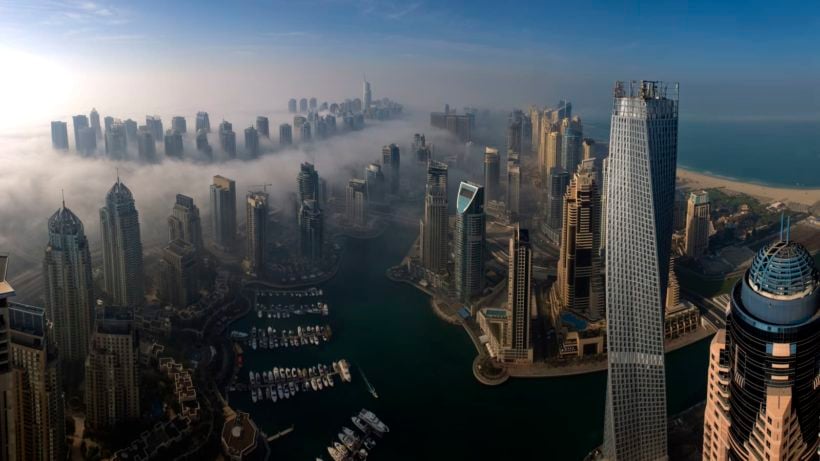
DUBAI, United Arab Emirates — Dubai on Wednesday announced a mammoth $8.7 trillion economic plan for the coming decade, aimed at turbocharging trade, foreign investment and its place on the map as a global hub.
“Dubai will rank as one of the top four global financial centers with an increase in FDI to over AED 650 billion ($177 billion) over the next decade,” Sheikh Mohammed bin Rashid al Maktoum, the ruler of Dubai, tweeted. “Over 300,000 global investors are helping build Dubai into the fastest growing global city.”
The post outlined a few of the 100 “future transformational projects” included in the ten-year economic roadmap. Those include boosting foreign trade to 25.6 trillion dirhams from 14.2 trillion dirhams in the last decade, nearly doubling annual foreign direct investment to 60 billion dirhams yearly, and increasing government spending from 512 billion dirhams in the last decade to 700 billion in the next.
The plan also aims to bring private sector investments up from 790 billion dirhams in the last decade to 1 trillion in the next and pledged 100 billion dirhams in annual contributions to the economy from digital transformation projects.
Dubai aims to double the size of its economy in the next decade and become one of the “top 3 economic cities around the world,” the Sheikh’s tweet read.
The news comes just a few days after Dubai announced an end to its steep 30% tax on alcohol, a move that looks to have been made to boost tourism and business. Recent years have seen the emirate — which is the glitzy commercial and tourism capital of the oil-rich United Arab Emirates — roll out a flurry of reforms aimed at making it more attractive for foreigners and international companies to live and invest.
The sheer size of the city’s economic goals may draw some skepticism, but finance experts in Dubai believe they are achievable.
“It’s ambitious, but there’s no reason to doubt those targets given Dubai’s economic history and records of reforms,” Tarek Fadlallah, Middle East CEO at Nomura Asset Management, told CNBC.
Karim Jetha, chief investment officer at Dubai-based asset management firm Longdean Capital, noted the competition angle: nearby Saudi Arabia is itself investing trillions to shed its closed and conservative image and attract tourism and foreign investment.
“The numbers sound ambitious but Dubai has never been short on ambition,” Jetha said. “As neighboring countries like Saudi Arabia open up and look to capture more regional business, Dubai is setting its sights higher and is seeking to be a global hub.”
Dubai has long been a regional hub for the Middle East but has of late made changes to integrate further with other parts of the world. It is home to a diverse 90% expatriate population and has for many years offered lifestyles comparable to those in the Western world — along with beaches, no income tax, and one of the world’s lowest crime rates.
The UAE also recently changed its Islamic weekend of Friday-Saturday to the Western weekend of Saturday-Sunday, to be in line with much of the rest of the world, and began offering a remote worker visa program through the coronavirus pandemic as more people adopted a remote work lifestyle.
Dubai has long been a regional hub for the Middle East but has of late made changes to integrate further with other parts of the world. It is home to a diverse 90% expatriate population and has for many years offered lifestyles comparable to those in the Western world — along with beaches, no income tax, and one of the world’s lowest crime rates.
The UAE also recently changed its Islamic weekend of Friday-Saturday to the Western weekend of Saturday-Sunday, to be in line with much of the rest of the world, and began offering a remote worker visa program through the coronavirus pandemic as more people adopted a remote work lifestyle.

